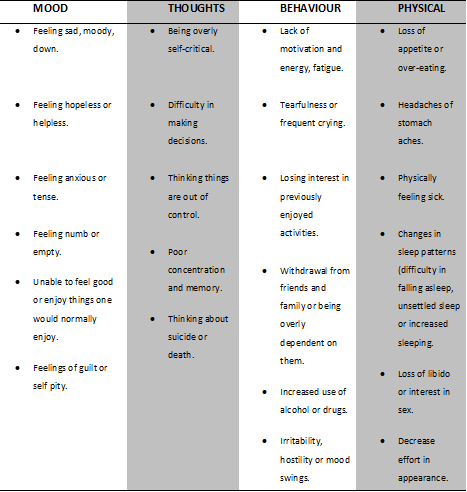
Posted on: Wednesday, 2 March 2011, 07:38 CST
Psychiatrists warn that economic and social changes could cause male self-esteem to erode, bringing an increase in the number of men with depression.
Reporting in the British Journal of Psychiatry, the authors say men will struggle with the shift from traditional male and female roles in Western society.
“Women are almost twice as likely to develop major depressive disorder in their lifetime as men, but we believe this difference may well change in the coming decades,” Dr. Boadie Dunlop of Emory University School of Medicine, told BBC News.
He argues that traditional male jobs such as manufacturing or physical labor are either being overtaken by improved technology or going overseas where labor rates are cheaper. And with an increase in the number of women attending universities, now more than men, the number of households where the female is the breadwinner is also increasing.
Research shows that since the onset of the recession in 2007, almost three quarters of the jobs lost in the US were held by men. And women are increasingly becoming the primary earners in 22 percent of households in 2007, compared to only 4 percent in 1970. Experts predict that even as the economy recovers there is little chance that traditional male jobs will also recover.
“Men’s failure to fulfill the role of breadwinner is associated with greater depression and martial conflict,” the authors write.
“Western men will face a difficult road in the 21st century, particularly those with low levels of education. we believe economic and societal changes will have significant implications for men’s mental health,” said Dunlop.
“This really confirms what we already know about unemployment and that it has a much bigger impact on men, mainly because male identity is bound up as a worker,” added Peter Baker, chief executive of Men’s Health Forum.
“Male social networks are based around work so losing a job can lead to isolation and depression,” he told BBC News.
“Men in the changing economy will face the same risks for depression that women faced in older economies: trapped in a family role from which they cannot escape because of an inability to find employment,” Dunlop said.
Men once were expected to be tough, stoic and unemotional in society, but that is eroding fast. The growing awareness of mental health through education, and hearing prominent male figures talk about their depression, has had a significant impact in allowing other men to validate symptoms of depression.
One of the most well established findings in the epidemiology of psychiatric disorders is that women have nearly twice the lifetime risk of developing major depressive disorder than men.
“The changing socioeconomic positions of the West could lead to prevalence in the rates of depression in men increasing, while rates in women decrease … practitioners need to be aware of these forces of life, and be prepared to explore with their patients the meaning of these changes and interventions that might be helpful,” Dunlop warns.
Men do not typically seek help when they have depression and are “more likely to self medicate” at a bar or pub than to seek professional care, Baker told BBC News. “As we see more men affected we need to think about how to support and get them back to work.” ?—
- British Journal of Psychiatry
Source: RedOrbit Staff & Wire Reports
More News in this Category